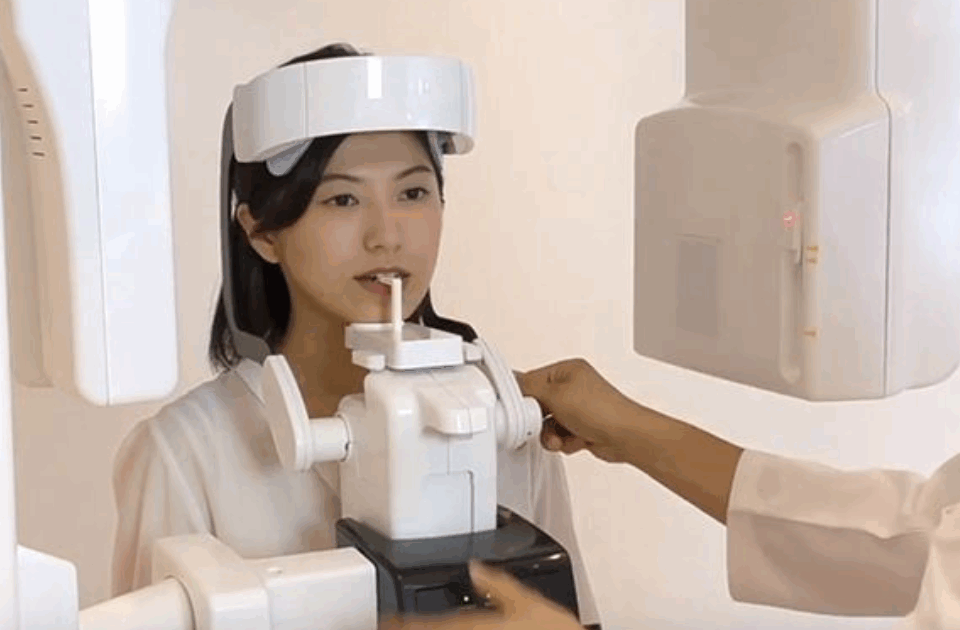
Understanding Angiography and Angioplasty: Key Services at Novocare Hospital
September 12, 2025
What to Expect from Cardiac Surgery at Novocare International Hospital, Sargodha
September 12, 2025Introduction
Heart disease remains a leading cause of morbidity and mortality worldwide. Early detection and timely intervention are crucial for reducing complications and improving quality of life.
Novocare Hospital’s latest catheterization (cath) lab provides advanced, minimally invasive solutions for diagnosing and treating heart conditions. Equipped with cutting-edge technology and staffed by highly skilled cardiologists, the cath lab allows precise evaluation, intervention, and follow-up care for patients of all ages.
This guide highlights how Novocare’s cath lab transforms cardiac care, from advanced diagnostics to lifesaving procedures, emphasizing the benefits of modern technology combined with expert care.
What Is a Cath Lab?
A catheterization lab is a specialized hospital unit where diagnostic and interventional cardiac procedures are performed using minimally invasive techniques. These labs are critical for detecting and treating coronary artery disease, heart rhythm disorders, and structural heart issues without the need for open-heart surgery.
Primary Functions of a Cath Lab:
| Function | Purpose |
|---|---|
| Diagnostic Imaging | Visualize arteries, heart chambers, and blood flow |
| Interventional Procedures | Treat narrowed or blocked arteries via angioplasty and stenting |
| Rhythm Assessment | Detect arrhythmias through electrophysiological studies |
| Device Placement | Implant pacemakers or defibrillators for rhythm disorders |
| Post-Treatment Monitoring | Ensure successful interventions and recovery |
Advanced Technologies in Novocare’s Cath Lab
Novocare’s cath lab features state-of-the-art equipment that ensures accuracy, safety, and improved patient outcomes.
| Technology | Benefit |
|---|---|
| High-Resolution Imaging | Provides detailed visualization of arteries and heart structures |
| Digital Subtraction Angiography | Enhances clarity of blood vessels for precise diagnostics |
| Fluoroscopy | Offers real-time imaging during procedures |
| 3D Mapping Systems | Assists in identifying complex heart structures and arrhythmias |
| Integrated Monitoring Systems | Tracks vital signs, cardiac rhythms, and procedure parameters continuously |
These technologies allow cardiologists to diagnose complex heart conditions efficiently and plan interventions with minimal risk.
Key Procedures Offered at Novocare’s Cath Lab
1. Coronary Angiography
A diagnostic procedure to assess coronary arteries, angiography identifies blockages and narrowing that may lead to heart attacks or angina.
Benefits:
- Early detection of coronary artery disease
- Guides interventional procedures like angioplasty
- Minimally invasive with rapid recovery
2. Percutaneous Coronary Intervention (PCI / Angioplasty)
PCI involves opening narrowed or blocked arteries using a balloon catheter. Often, a stent is placed to maintain blood flow.
Benefits:
- Restores oxygen-rich blood to heart muscles
- Reduces chest pain and risk of heart attack
- Shorter recovery compared to open-heart surgery
3. Electrophysiological Studies (EPS)
EPS assess the electrical activity of the heart to detect arrhythmias. It guides treatment strategies for abnormal heart rhythms.
Benefits:
- Detects and maps irregular heartbeats
- Enables targeted treatments like ablation or device implantation
- Improves long-term cardiac rhythm management
4. Pacemaker and Defibrillator Implantation
For patients with heart rhythm disorders, Novocare’s cath lab provides implantation of devices such as:
- Pacemakers to maintain regular heartbeats
- Implantable cardioverter-defibrillators (ICDs) to prevent sudden cardiac arrest
Benefits:
- Reduces risk of life-threatening arrhythmias
- Improves quality of life and physical activity tolerance
5. Valvuloplasty
A minimally invasive procedure to open narrowed heart valves, improving blood flow and heart function.
Benefits:
- Relieves valve-related symptoms
- Avoids more invasive surgical procedures
- Supports better long-term cardiac performance
Comparison: Angiography vs Angioplasty
| Feature | Angiography | Angioplasty |
|---|---|---|
| Purpose | Diagnostic | Therapeutic |
| Procedure Type | Imaging of blood vessels | Opens blocked arteries |
| Invasiveness | Minimally invasive | Minimally invasive with stent placement |
| Recovery Time | Few hours | 1–2 days hospital observation |
| Outcome | Identifies problems | Restores blood flow |
Benefits of Novocare’s Cath Lab
| Benefit | Explanation |
|---|---|
| Minimally Invasive Procedures | Small incisions reduce recovery time and complications |
| Rapid Diagnosis and Intervention | Early treatment during the same visit if required |
| Advanced Imaging Accuracy | Detailed visualization ensures precise procedures |
| Comprehensive Cardiac Care | From diagnosis to post-procedure follow-up |
| Patient-Centric Approach | Personalized care plans and expert monitoring |
Who Can Benefit from a Cath Lab Evaluation?
- Patients experiencing chest pain, shortness of breath, or fatigue
- Individuals with high cholesterol, hypertension, or diabetes
- Men and women with family history of heart disease
- Patients with abnormal ECG or stress test results
- Individuals requiring device implantation or valve interventions
Novocare Insight: Timely cath lab evaluation can prevent severe heart attacks and improve long-term outcomes.
Patient Experience at Novocare
Pre-Procedure:
- Comprehensive medical history review
- Blood tests and imaging
- Patient education on procedure steps
During Procedure:
- Continuous monitoring by cardiologists and nursing staff
- Local anesthesia with sedation for patient comfort
Post-Procedure:
- Observation in recovery area or hospital room
- Medications to prevent blood clots and maintain stent function
- Lifestyle counseling and rehabilitation planning
Lifestyle Guidance for Heart Health
| Lifestyle Element | Benefit | Novocare Guidance |
|---|---|---|
| Balanced Diet | Reduces risk of heart disease | Include fruits, vegetables, lean protein, whole grains |
| Physical Activity | Improves cardiovascular fitness | 150 min/week of moderate exercise recommended |
| Stress Management | Lowers blood pressure and risk of cardiac events | Mindfulness, yoga, or therapy |
| Smoking & Alcohol Control | Prevents heart and vascular complications | Counseling and structured cessation programs |
| Regular Screenings | Early detection of risk factors | Periodic check-ups and lab tests |
FAQs: Cath Lab Services at Novocare
1. Is angiography painful?
No, most patients experience minimal discomfort under local anesthesia.
2. How long do procedures take?
Angiography: 30–60 minutes; angioplasty: 60–90 minutes.
3. Are hospital stays required?
Angiography: a few hours; angioplasty: typically 1–2 days.
4. What is the success rate of angioplasty?
Modern PCI has over 95% success in restoring blood flow.
5. Can cath lab procedures prevent heart attacks?
Yes, by identifying and treating blockages early.
6. Are pacemakers and ICDs safe?
Yes, with proper monitoring and follow-up care.
7. Can elderly patients undergo these procedures?
Yes, with risk assessment and tailored care.
8. How soon can normal activities resume?
Light activities within 1–2 days; strenuous exercise as advised by cardiologist.
9. Are cath lab procedures covered by insurance?
Most major health plans cover angiography and angioplasty.
10. How do I schedule a cath lab appointment?
Appointments can be booked online, via phone, or through physician referral.
11. What lifestyle changes are recommended post-procedure?
Heart-healthy diet, regular exercise, stress management, and medication adherence.
12. Are there risks involved?
Rare risks include bleeding, infection, or artery damage; Novocare’s protocols minimize these risks.
13. Can multiple angioplasties be required?
Yes, in cases of new blockages; follow-up care ensures monitoring.
14. How is Novocare different from other hospitals?
Advanced technology, expert cardiologists, comprehensive care, and patient-focused approach.
15. What is the first step for patients?
Schedule a consultation to assess risk factors and determine the need for cath lab evaluation.
Expert Conclusion from Novocare Cardiology Team
Novocare Hospital’s latest cath lab represents a major advancement in cardiac care. By combining state-of-the-art technology, expert intervention, and personalized care, patients receive accurate diagnosis and effective treatment for heart disease.
From early detection through angiography to life-saving interventions like angioplasty and device implantation, Novocare ensures optimal outcomes. Regular follow-ups, lifestyle counseling, and patient education further enhance long-term heart health. Choosing Novocare means choosing precision, safety, and comprehensive cardiac care.


